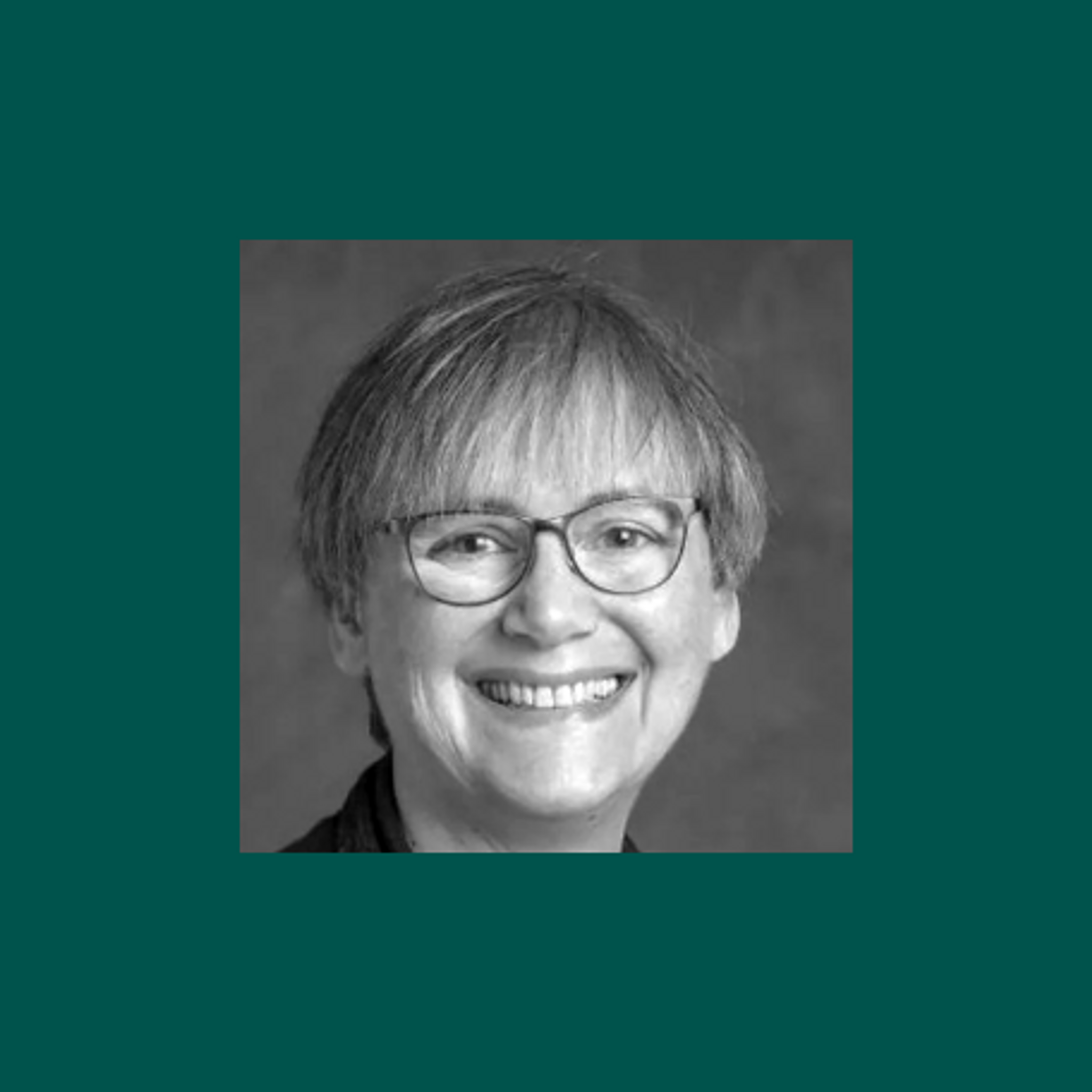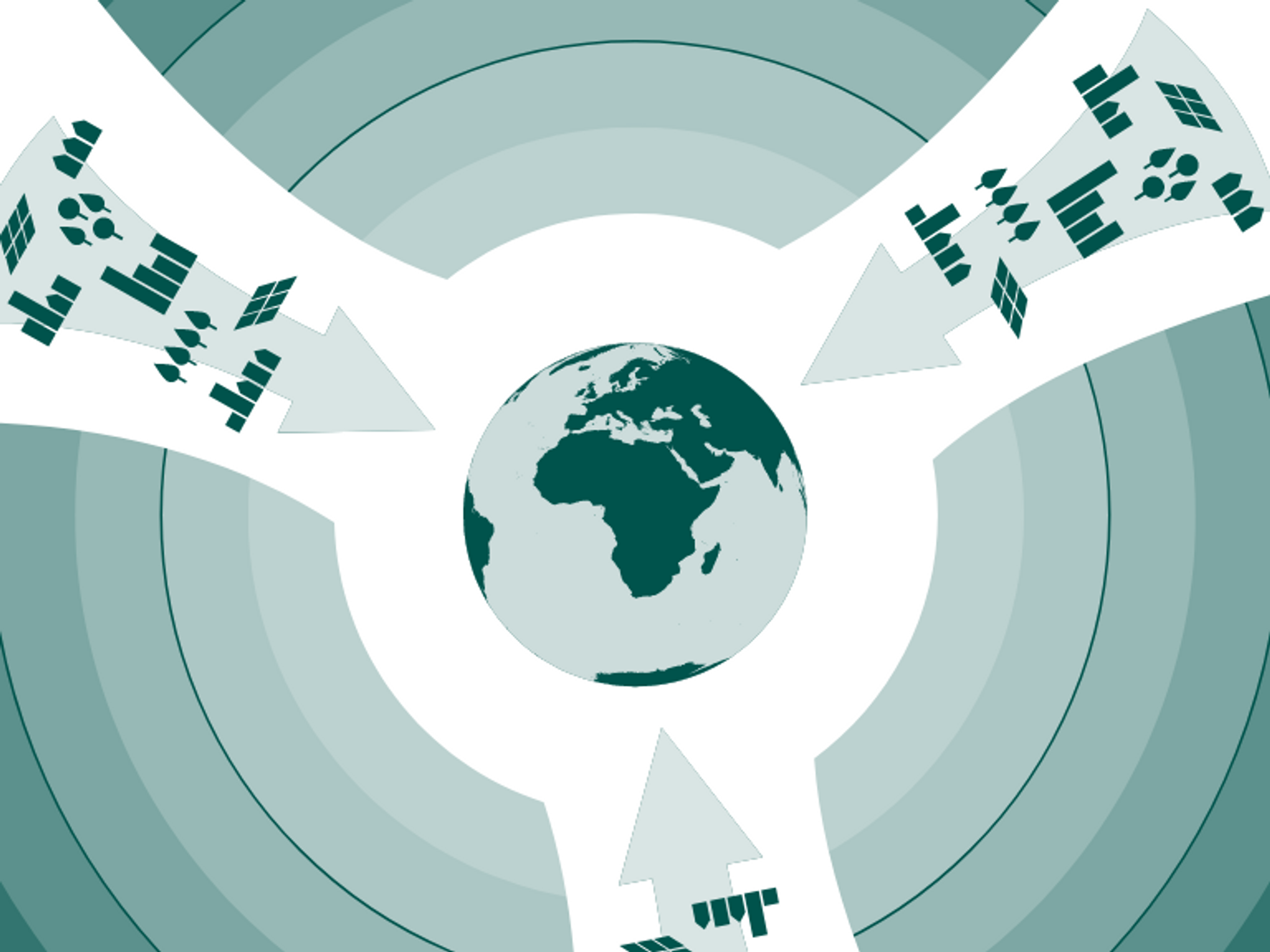If we want to tackle unequal cities, collective efforts are vital
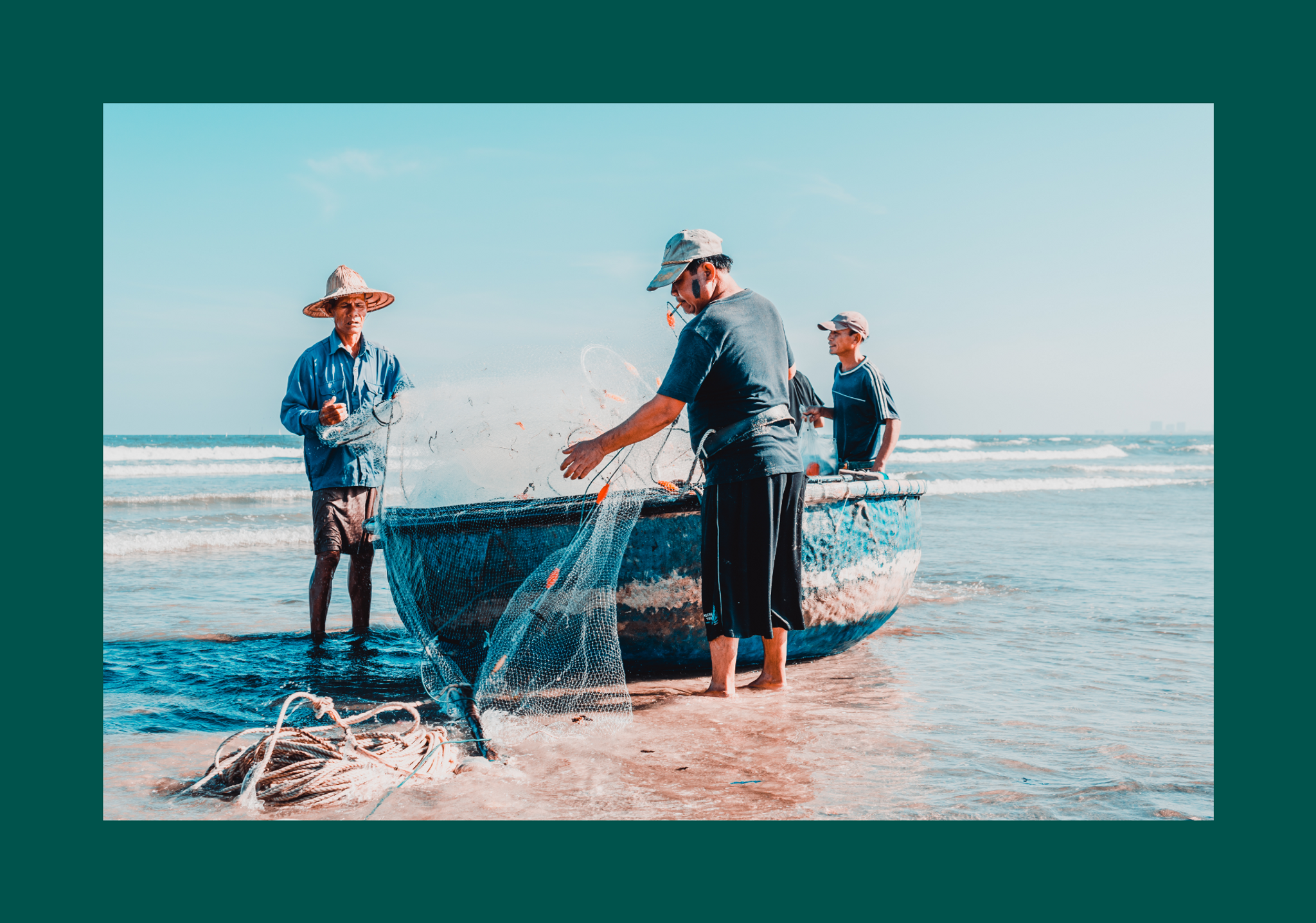
Local fishermen in Tho Quang, Vietnam, mending the nets after a morning of fishing. Photo: Bùi Quang Sáng, 2019
Urban inequalities are growing globally, and the Covid-19 pandemic has only widened these disparities. Cities are increasingly unable to address the big challenges of today: poverty and aspirations for prosperity, increasing environmental disasters and the urgency of climate justice, and socio-political exclusion.
These are the challenges taken on by the Knowledge in Action for Urban Equality (KNOW) programme, an international consortium funded by the UK’s Global Challenges Research Fund (GCRF)in partnership with 13 institutions and led by The Bartlett Development Planning Unit. The programme, which ran from 2017 to 2022, worked across 12 cities in Africa, Asia and Latin America.
KNOW was committed to producing knowledge collectively with communities, governments and academia. This is particularly pertinent to poor communities in informal settlements, who are traditionally excluded from policy and planning. Knowledge co-production ultimately promotes the potential for democratic dialogue and the better delivery of real change such as access to water, sanitation and livelihoods. At the conclusion of KNOW, there are significant experiences to share about how to initiate and consolidate pathways towards urban equality.
In the Peruvian capital of Lima, the Department of Architecture at the Pontificia University of Peru (PUCP) wanted to address the food insecurity caused by the pandemic, starting with communities in Jose Carlos Mariátegui on the city outskirts.
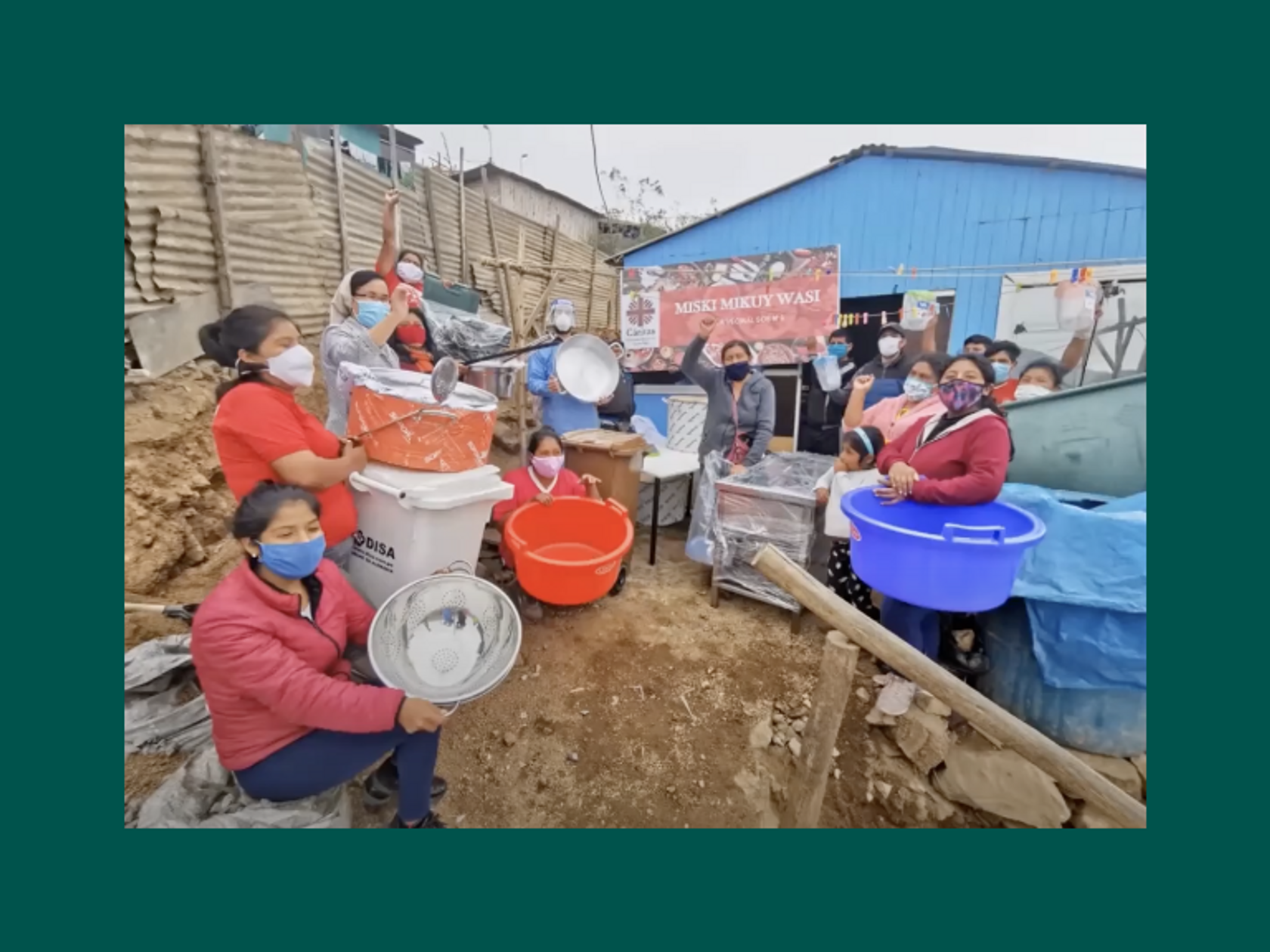
Community soup kitchen in Lima, Peru. Photo: Kelly Ros Mery Jaime, 2020
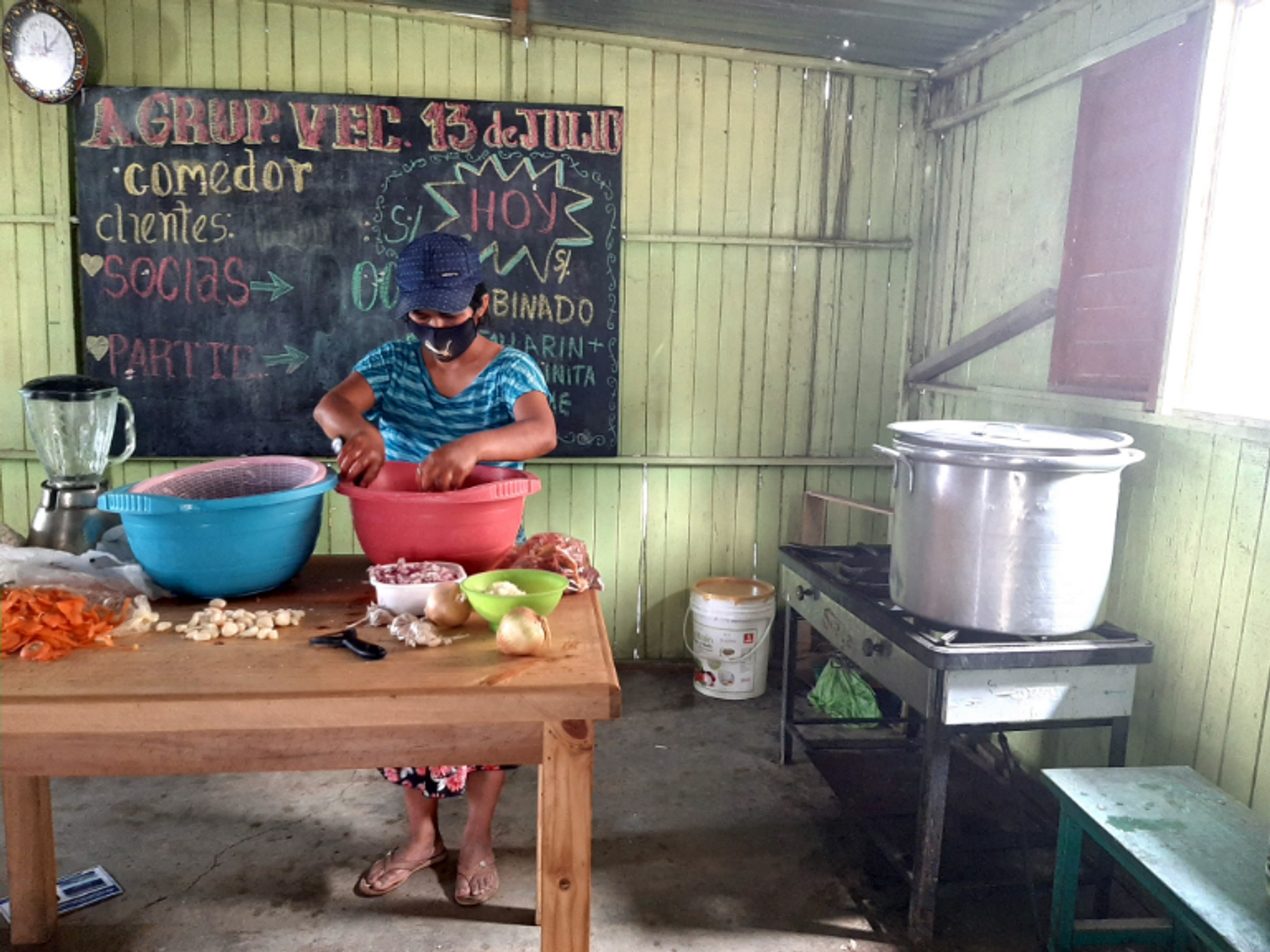
Lunchtime preparation at a community soup kitchen in Lima, Peru. Photo: Kelly Ros Mery Jaime, 2020
In response to this dire situation, women in these communities (and across Lima and Latin America) organised community kitchens or ‘Ollas Comunes’ (OCs), meaning ‘Common Pots’. These OCs were collective initiatives to reduce the cost of food and support households unable to afford a meal. Working with communities, the Institute of Urban Development and government agencies, PUCP mediated the co-production of knowledge and designed proposals to improve the functioning of OCs, comprising four architectural modules: a kitchen, water and sanitation, storage facilities and an urban garden. Taking a circular approach to the use of water, these prototypes are adaptable to specific neighbourhood conditions. This example was recognised by the Ministry of Housing, and PUCP shared the methodology with other district municipalities to support community kitchens in other parts of the city.
In Sierra Leone’s capital Freetown, the Sierra Leone Urban Research Centre (SLURC) – working with two community organisations, the Federation of the Urban and Rural Poor and the Centre for Dialogue on Human Settlement and Poverty Alleviation – jointly collected data about the city and created Community Learning Platforms in three informal settlements. These ‘platforms’ provide opportunities to learn and share experiences within and between communities, building capacities and developing collective strategies to engage with the government, gain legal recognition and plan improvements in informal settlements.
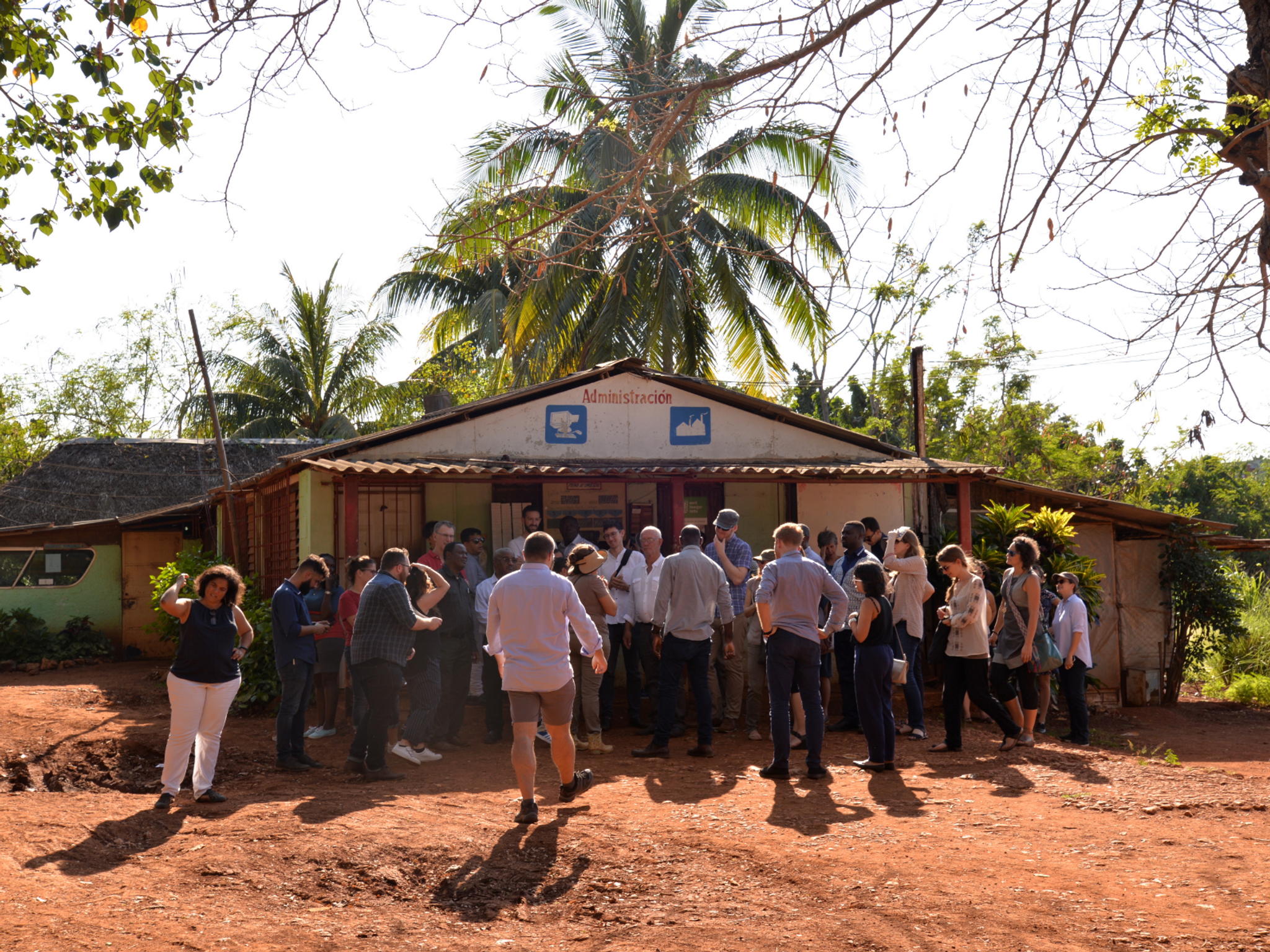
The KNOW team visiting the Organopónico Vivero Alamar urban farm during an Annual Workshop in Havana, Cuba. Photo: David Heymann, 2019
Knowledge co-production promotes the potential for democratic dialogue
With its community partners, SLURC also supported the creation of a City Learning Platform to enable city-wide sharing and coordination with the mayor’s office and other government agencies. The Community Learning Platforms also provided an important structure during the pandemic for social mobilisation and care, the dissemination of information and resources, and filling vital gaps in official government responses.
In the Vietnamese city of Da Nang, the Da Nang Architecture University (DAU) co-produced information on fishing communities that have been impacted by the urban growth and economic restructuring of the city. DAU mapped 16 historic fishing villages in the city, of which ten were resettled but active, and four were scattered with disappearing fishing traditions. In the research process, these communities and their leaders, as well as local authorities and the students involved in the research, learned from each other and other fishing communities in neighbouring provinces.
The research created the basis for a regional fishing community network. It also contributed to validating “the tangible and intangible heritage of the fishing communities of Da Nang… making these communities visible to city-level stakeholders and protecting their social, cultural and environmental assets,” as detailed in a July 2021 KNOW newsletter. This included a government-hosted ceremony in 2021 to declare seven historical monuments of Nam O fishing village as a city-level monuments cluster. Further KNOW activities have consolidated a commitment to community-based tourism between the network of fishing communities, DAU and the Da Nang Department of Tourism, to recognise fishing communities as active participants in the future prosperity and identity of Da Nang.

View overlooking Dwarzarck settlement, Freetown, Sierra Leone. Photo: Camila Cociña, 2019
Poor communities in informal settlements are traditionally excluded from policy and planning
Learning from the KNOW programme was shared globally through a partnership with United Cities and Local Government in the production of the GOLD VI Report, Pathways to Urban and Territorial Equality. Launched in October 2022 in South Korea at the largest global gathering of local and regional government representatives, GOLD VI documents hundreds of examples of cities, local and regional governments taking action aimed at reducing inequalities in alliances with local communities.
Based on the KNOW research methodologies, a set of research ethics guidelines was developed with the Bartlett Ethics Commission, and was subsequently awarded the RIBA President’s Awards for Research 2021.
The valuable knowledge and practical outcomes of KNOW demonstrate the importance of an inclusive approach to research and capacity building, emphasising partnerships with equivalence and the application of knowledge co-production with co-learning. Given the growing proportion of the world’s population living in cities, shaping pathways to urban equality and a decent life for all citizens, is central to our common future.
Find out more about KNOW
